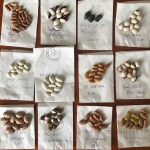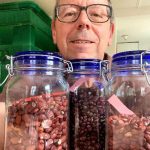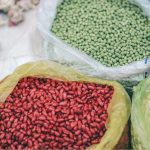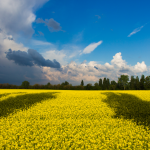Acest site folosește cookie-uri pentru a-ți putea oferi cea mai bună experiență în utilizare. Informațiile cookie sunt stocate în navigatorul tău și au rolul de a te recunoaște când te întorci pe site-ul nostru și de a ajuta echipa noastră să înțeleagă care sunt secțiunile site-ului pe care le găsești mai interesante și mai utile.
Legumes at re:publica!
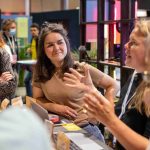
At this year’s Re:publica, Carla Ulrich (Tiny Farms, Slow Food Youth), Sofia Elisabeth Berlinghof (Tiny Farms, Slow Food Youth) and Ekkehard Spiegel (Weltacker/Global Field, and Global Bean) held a workshop on “Leguminati Calling: The solution for the food of the future lies in legumes” as part of Our Food our Future.
Legume diversity at the ÖBZ

We are a volunteer group within the community garden project at the Ecological Education Center (ÖBZ) in Munich and collect varieties of beans that are no longer in commercial use. We are enthusiastic about the diversity and the aesthetics of beans, of course also about the culinary enjoyment and their ecological value.
Seeds for the Winners of the Bean Beauty contest!
Meet the Global Bean partners: Hubert Würsch
The Global Bean: In the Show Gardens!
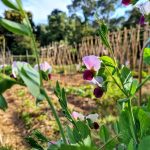
What do chickpea seedlings look like? What new technique could I try to establish my beans next year? How do other gardeners grow my favorite legume crop in a completely different climate? How can I multiply my own seeds? If you are curious about the diversity of legumes, join us for a garden tour through Europe and maybe beyond.
Meet the Global Bean partners: Donal Murphy-Bokern

The protein choices we make determine so much of how the food system impacts on our health and the planet. At the moment, I am the scientific coordinator of the EU-funded Legumes Translated consortium. I am also a member of the EcoXtract consortium that is developing a new plant-based solvent for the food industry.
May – Legumes and the hunger crisis
April Monthly meeting: Intercropping
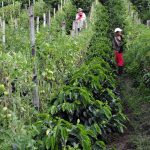
Intercropping, other than crop rotation, means planting and harvesting more than one plant at a time: onions go with strawberries, lentils need a pillar to climb on, such as barley, the famous three sisters of the maize, bean and pumpkin Milpa are another example and even permaculture is just highly diversified intercropping.

